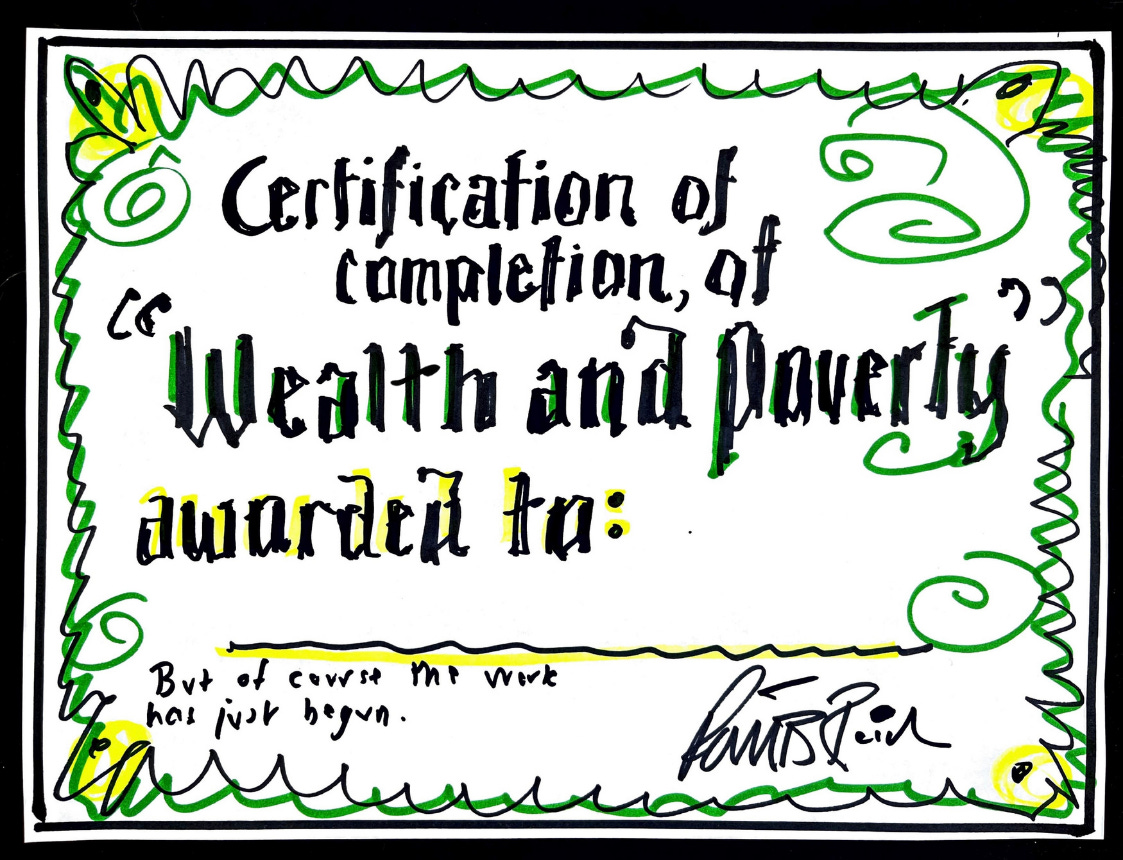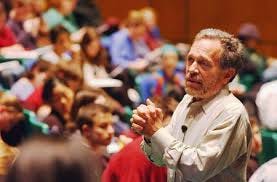Friends,
If you’ve been following along every Friday, you’re now graduating from my 14-week virtual course on “Wealth and Poverty.”
Congratulations!
Be sure to collect your graduation certificate — which I hope you print out, add your name to, frame, and hang in a conspicuous place.
cut here ——————————————————————————————————
cut here ——————————————————————————————————-
Miss any sessions? Just click on the links below.
Wealth and Poverty class sessions
Part I — The problem
Class 1: What’s happened to wealth and income in America over the last 40 years, and should we care?
Class 2: The investor’s view: What’s the role of capital markets in driving inequality?
Class 3: Globalization, technological change, and the jobs of the future: Is widening inequality inevitable?
Class 4: Widening inequalities of place: How does the sorting mechanism work?
Class 5: The altered balance of power between capital and labor: What’s been the consequence of increasing monopolization and decreasing unionization?
Class 6: The interaction of wealth and political power: What’s the vicious cycle?
Part II — The struggle toward solutions
Class 7: Taxing and redistributing: Are these reversing the vicious cycle?
Class 8: Macroeconomic policy: How do fiscal and monetary policy aggravate or ameliorate inequality?
Class 9: Systemic racism: How does racism interact with class, and what can be done to reduce racial inequalities?
Class 10: Public assistance, work requirements, and the “deserving” poor: Why has public assistance to the poor shifted toward requiring work, and what are the consequences?
Class 11: Reducing health inequalities: How can our health care system become more equitable?
Class 12: Reducing environmental inequities: What can be done to protect the more vulnerable from climate devastation?
Class 13: Reducing educational inequities: How can we ensure that everyone has access to a good education?
Class 14: The future of inequality: Where do we (and you) go from here?
So glad you joined me.
I hope you found the course challenging and insightful — and perhaps want to take action to make your community, state, America or whatever nation you call home, a more just and humane place. Let us know in the comments.







Share this post